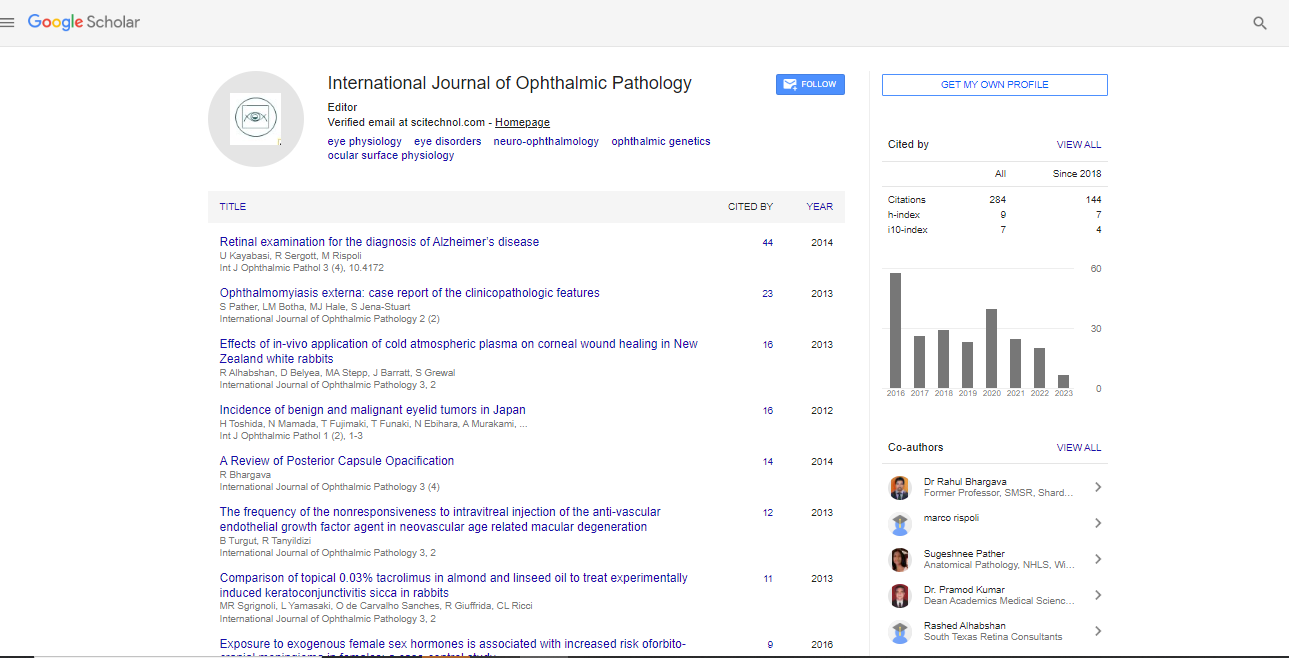Lacrimal fluoroscopy
Khaled G Abu Eleinen, Mohammad G Barhooma, Hoda T EL Shiwy, Mohamed W M Nagaty and Ibrahim Mosaad AbdelAti
Cairo University, Egypt
: Int J Ophthalmic Pathol
Abstract
Objectives: To photograph fluorescein disappearance test, using the cobalt blue filter of fundus camera and to compare results with TC 99 radioisotope tracking (scintigraphy) and lacrimal probing/ irrigation test. Patients and Methods: 30 patients suffering from unilateral epiphora were examined clinically with slit lamp, with regurge test and lacrimal probing / irrigation test. Fluorescein dye disappearance test was photographed using the cobalt blue filter of fundus camera. Lacrimal TC 99 scintigraphy (scintigraphy) was done for comparison. Results: Different levels of lacrimal obstruction were detected by lacrimal probing / irrigation test. Nasolacrimal duct obstruction was found in 22 cases, 2 cases had common canalicular obstruction and 5 cases had different levels of canalicular obstruction and one case had punctal obstruction by fibrosis. Lacrimal fluoroscopy was positive in all cases with dye retained more than 5 minutes compared to less than 2 minutes in the fellow normal eye. Scanning of Tc99 showed only retention of the isotope like lacrimal fluoroscopy. After DCR operations done for 24 cases, both techniques had similar results to prove success in 21 eyes (87.5%). Tc99 scan had the advantage of delineating the isotope tracking down to the nose in patent lacrimal passages, while lacrimal fluoroscopy showed only patency as clearance and obstruction as retention of the dye. Conclusion: Lacrimal fluoroscopy had similar results to lacrimal scintigraphy in demonstrating patency or occlusion of lacrimal passages, with much lower costs and less hazards of exposure to radioactive substance. .
Biography
Khaled G Abu Eleinen is a renowned Ophthalmology Professor. Khaled G Abu Eleinen is working in Department of Ophthalmology, Faculty of Medicine, Cairo University, Cairo, Egypt and Department of Ophthalmology, Fayoum eye hospital, Fayoum, Egypt . He publishes many articles in reputed journals.
 Spanish
Spanish  Chinese
Chinese  Russian
Russian  German
German  French
French  Japanese
Japanese  Portuguese
Portuguese  Hindi
Hindi 